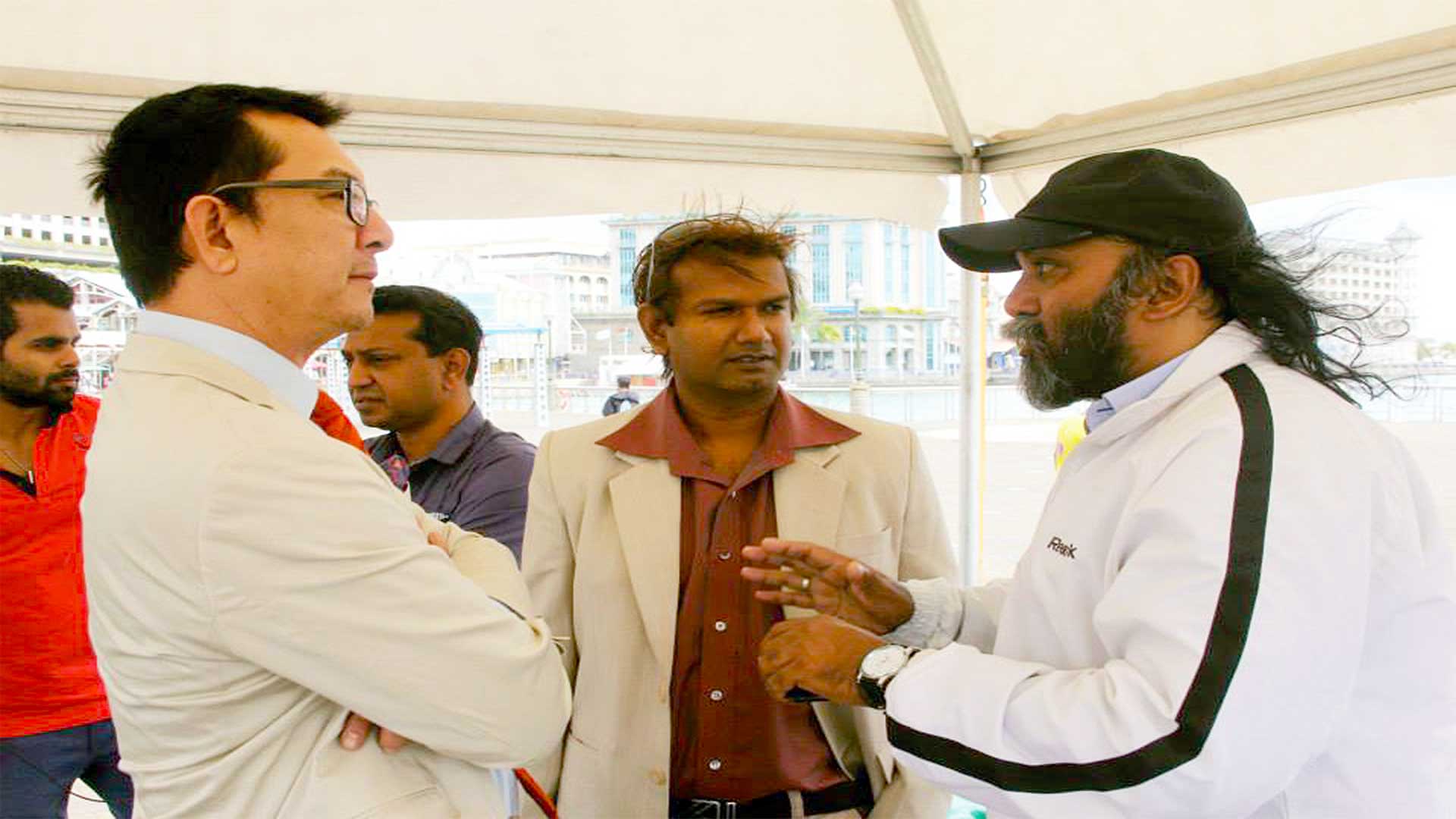The creative arts industry is in full swing, with film making being given a major boost, both to attract foreign film shooting crews and to boost local talents into the commercial arena. The Film Rebate Scheme, launched in February 2012, is being reviewed to allow all qualifying production expenditures incurred in shooting to be refunded.
The film industry creates jobs for Mauritian workers and entrepreneurs in a number of sectors, namely accommodation, transport and logistics, hospitality, equipment rental, talent hire, etc.
Dick Ng Sui Wa, chairman of the Mauritius Film Development Corporation, told News on Sunday that he is fully satisfied with the institution’s achievement this year. “I was nominated in May 2015 and we are proud to say we have achieved a lot during six months. In 2015, up to November, a total of 77 foreign film crews have come to Mauritius. During the same period, 25 local film crews have shot films. Indeed, there has been an intensification in film shootings so far, as we are giving a rebate of 30% under the Film Rebate Scheme. We are even considering to raise the rebate to 40% and if foreign crews undertake to source 50% of their staff locally, we will grant at least 50%,” he said.
But what about skills availability? Dick Ng Sui Wa explained that very often, film makers complain that they cannot find local pool of talent. To overcome this problem, the MFDC is negotiating with four foreign institutions to come and set up their campuses here and to provide diploma courses to locals.
Need for studio
The chairman explained that Mauritius needs to have the necessary facilities in order to attract film makers to our shores. “We are looking for investors willing to set up film studios under a Public-Private-Partnership basis. Did you know that South Africa turned down 32 film shooting requests because its studios were overbooked? If we had the necessary logistic facilities, we could have attracted them here. It was a missed opportunity,” he said.
Why Mauritius?
We asked him why Mauritius is becoming a favourite destination for film shooting. Dick Ng Sui Wa replied that the country itself is like a studio, with all towns, villages and natural locations sceneries that can be easily converted to match a film’s requirement. “Villages can be used to depict Indian sceneries, Chinese film makers can use China Town, etc. We have relics of the colonial era as well as modern town centres. Our people also are cosmopolite, and film makers do not have difficulty to find appropriate persons.
However, you will be surprised to know that some countries were not aware that Mauritius offers opportunities for film shooting. Indian and Chinese film makers know very well and are regularly here, but the French thought Mauritius is only a tourist destination and an international financial centre. This is why I say we must go out and meet these people personally and explain and convince them. The awareness must be created. If we just sit here and wait for them to come, no one will come. Unfortunately, MFDC does not have a budget for promoting our locales and we have to rely on BOI and MTPA,” he said.
Main projects
One of the MFDC’s objectives is to create jobs in the cinematography industry, which is a passionate sector and well-paid. The MFDC also wants local film makers to emerge. In this context, it launched the 7-Day Challenge, giving a kick to Mauritian entrepreneurs. Rodrigues also had its first mobile phone film competition. In January 2016, the intercollege competition will be held.
Targeting new markets
While China and India are traditional and established sources for film makers, the MFDC has made an inroad in France and in Malaysia. A Malaysian delegation, led by the son of the Malaysian Prime Minister, was recently in Mauritius and they have shown a lot of interest of shooting their Malay serials in Mauritius. This will also boost the tourism industry. “Our next target is the Arab film makers, and we aim to attract Turkish, Egyptian and Moroccan film makers to Mauritius. We are also working over Africa.
Nigeria is the 2nd largest film producer in the world. We are currently working towards hosting the next ‘Rencontres du Cinema Francophone en Afrique’ in Mauritius in 2017. As the Indian Prime Minister Narendra Modi remarked when he visited us, cinema is a strong pillar of the economy. However, we do not have figures on the actual foreign investment and income brought about by this industry because no selective computation is carried out under current methodologies.”
Political will
Things are moving fast, according to Dick Ng Sui Wa, thanks to vibrant political will at the helm. “I must say that the government has achieved a lot during the first year. From pension hike to lower electricity rates and free water, reduction in price of fuel, price of beef and mutton/goat meat, etc. Unfortunately, there has been a serious deficit of communication. However, people should also realise that all problems cannot be solved in one year, this is why governments have a mandate of five years. I am confident the right decision taking is being taken. The political will is there, and I am positive we will achieve a lot. I just hope more jobs are created as the jobless cannot wait. This is where emerging sectors come to the rescue,” he concluded.
Opportunities
The following segments provide opportunities for professionals in these fields: Filmmaking/Directing, Photography, Camera works, Line Producing, Scriptwriting, Training in audiovisual field, Make-Up artist, Art/Stage Direction, Acting/Extras, Film Editing, Lighting (spot boys, DOP), After Effects/Animation, Sound, Costume Design, Modelling and Casting, Catering services, Transport Services, Production house, etc.
 Par
Shaffick Hamuth, Defimedia.info
Par
Shaffick Hamuth, Defimedia.info
 Par
Shaffick Hamuth, Defimedia.info
Par
Shaffick Hamuth, Defimedia.info

 J'aime
J'aime